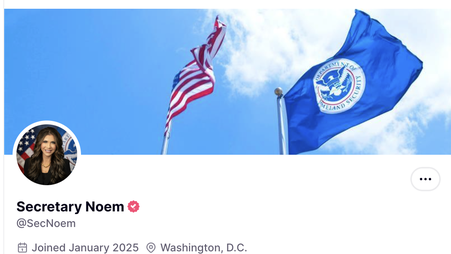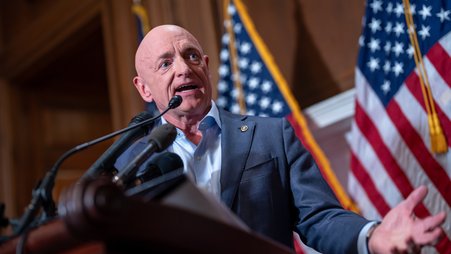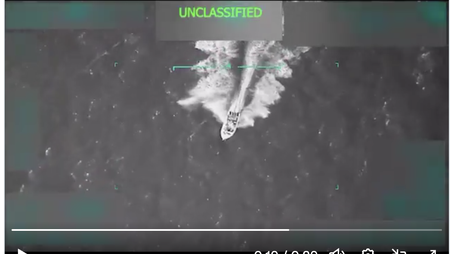America’s classification system dates to the Cold War. And today, the government’s sprawling bureaucracy perpetuates a culture of excessive secrecy that has flourished under both Democratic and Republican administrations.
The following are the systemic problems that will need fixing regardless of who wins the election:
Rampant overclassification
As Freedom of the Press Foundation (FPF) has noted, the government classifies too many secrets, and most shouldn’t be secret in the first place.
We don’t know how many documents are classified, and we also don’t know how expensive it is to keep them secret. Educated guesses say between 75% and 90% of information is classified when it shouldn’t be, and to the tune of $18 billion a year (although this is a conservative estimate, relying heavily on costs associated with the government’s 4 million active security clearances).
A large part of the problem is that classification decisions are subjective.
Different agencies make different classification decisions about the same documents. Sometimes the same agency can’t settle on a classification decision. The State Department once released four different versions of the same document, with different redactions each time. In another example, the same reviewer made different determinations about the same document mere days apart.
If we do not clearly and narrowly define what information may be classified, we will see an increasingly unmanageable number of unwarranted classification decisions.
Espionage Act reform
The ambiguous, outdated language of the Espionage Act (it was passed soon after World War I started) must be reformed to prevent the targeting of journalists and their sources.
Recent amendments proposed by Rep. Rashida Tlaib show how the law can be reformed to allow the prosecution of true espionage cases while protecting the rights of journalists and the public, which benefits from the national security-related reporting.
Secret law
The Department of Justice’s Office of Legal Counsel has authored an unknown number of secret legal opinions, which have profound implications across the executive branch — on everything from immigration to the limits of presidential authority.
Members of Congress and the public have asked for these opinions to be made public to no avail.
OLC should publish a list of all its classified legal opinions. If it refuses, Congress should reconsider how much it appropriates to the DOJ.
Secret Intelligence Community budget
Intelligence agencies do not have to disclose their individual or program-level budgets, so agencies like the CIA can hide how much they spend on constitutionally questionable programs.
The only public intelligence budget is an aggregate budget for the 17 agencies that comprise the intelligence community — and it totals nearly $100 billion. This, combined with the practice of secretly transferring appropriations from nonintelligence agencies to intelligence agencies, gives intelligence agencies a blank check without any serious oversight.
Every member of the intelligence community should be required to disclose its total budget. Claims that damage to national security would result are false; some of these figures were leaked by Edward Snowden in 2013, with no resulting damage.
FOIA improvements
FOIA backlogs grow every year, regardless of congressional scrutiny and presidential instructions to reduce the backlogs.
This is partly caused by an exponential growth in the number of electronic records that agencies still primarily review manually.
Agencies need to post more records proactively, and they must be allocated the funds to develop artificial intelligence and other technologies that will help release information. This needs to be done with public input to ensure that AI programs are not simply being trained how to most efficiently deny information.
More and better resources will help, as would ensuring that FOIA offices have a dedicated budget. But money alone won’t ensure transparency.
The DOJ should conduct a litigation review of all pending FOIA cases to ensure each reflects the department's most updated guidance. This would demonstrate to agencies that the DOJ won't blindly defend bad agency FOIA positions in court.
This, combined with disciplinary actions against officials who regularly and inappropriately withhold information, would help address knee-jerk secrecy in FOIA offices and beyond.
Fund the National Archives
The National Archives and Records Administration is responsible for running the National Declassification Center, overseeing the government’s compliance with classification rules, and ensuring agencies are appropriately preserving records.
It is also woefully underfunded. Its budget needs to be doubled, with a special focus on ensuring NARA has the resources to appropriately preserve a wide variety of electronic records.
Systematic declassification programs
Systemic reform takes time, but this shouldn’t prevent the government from immediately being more transparent about the most existential threats we face.
The government should build upon past success of targeted, declassification projects from across the government (including a recent effort that reviewed 47,000 pages on human rights violations in Argentina) and establish new declassification projects on climate change and nuclear weapons.
Read the other blogs in this series

Excessive government secrecy and the presidential election
This multipart series assesses the secrecy risks of both presidential candidates, the systemic problems that will challenge either presidential administration, and the ways the public can most effectively fight for transparency.

The Trump secrecy assessment
The first Trump administration flouted transparency norms, preservation laws, and attempts at congressional oversight. How might a second Trump term continue this trend?

The Harris secrecy assessment
How secretive would a Harris administration be? Her time in the Senate provides insights on ways she could shape secrecy in the United States as president.





